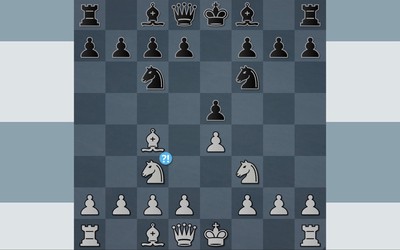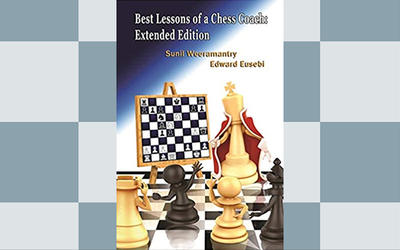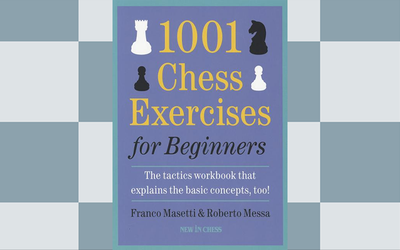
Gambit Publishing; Lichess; Riki Hakulinen
Book review: 1001 Deadly Checkmates (Nunn, 2011)
A good collection of checkmate exercises with some odd difficulty spikes.Introduction
1001 Deadly Checkmates (Nunn, 2011) is a collection of (shockingly enough) 1001 checkmate exercises. In typical fashion, all positions aren't strictly forced checkmates, but near enough that it doesn't matter (e.g. your opponent has to give up a rook or three to stay alive).
The puzzles are presented in chapters such as "pawn promotion mates" or "back-rank mates", each gradually ramping up the difficulty from one to five points. The maximum possible number of points is given after each chapter.
The good
Well, what can be said: it's a book of a thousand and one mostly high-quality checkmate exercises. Most players below expert level should find something of value here: newer players can probably just solve the exercises ranked from one to three points (there aren't that many four- to five-pointers), and somewhat more experienced people can focus on the tougher puzzles.
The puzzles reinforce common checkmating patterns by giving variations and elaborations on them, and I definitely experienced some "yeah yeah it's this thing" moments both in the solving itself and in my games. It has improved my attacking chess somewhat: it is much easier to decide which squares your pieces belong on if you have a preconception of some possible checkmates.
I wouldn't necessarily get a book on checkmates as one of your very first books, but once you have a more general-purpose puzzle book, something for positional play and maybe something on endgames, it's a fine option: besides the obvious purpose of finding checkmates more consistently, checkmate exercises do help with calculating forcing variations overall.
The book feels solid enough physically. The diagrams are clear and well-sized (six per page). I'm generally not a huge fan of Gambit's overall look (mostly because of the two-column layout), but for puzzle books it's not an issue.
All positions are from relatively modern games, so you're unlikely to see exact repeats of puzzles you've seen in other books.
The bad
The aforementioned variability in difficulty is also a very real downside: I find it hard to believe there exists a single person who this book caters to in its entirety. For me, personally, the difficulty level is roughly as follows:
1 — Entirely trivial, solved-at-a-glance puzzles.
2 — Fine pattern recognition building fodder.
3 — Just right: some difficulty solving, but usually fairly brisk solves.
4 — Very difficult; some I couldn't solve.
5 — Just barely solvable, many I couldn't solve.
I get the distinct feeling that GM Dr. Nunn, being a ridiculously brilliant man, does not quite grasp what makes a puzzle easy or difficult for the average woodpusher: sometimes subsequent puzzles would make me go from scratching my head for a good 20 minutes to saying "Huh, that's it?" within five seconds. Granted, it's possible different people will simply get stuck on different puzzles, but I really feel like some of the four-pointers could be fives or threes instead.
All this is to say that the book could have served a smaller group of people better if the difficulty range was a bit smaller. Maybe nobody misses out on too much and the range of difficulty makes the book useful over a longer period of time for an improving player, but I would have preferred a slightly more compact difficulty curve.
I never counter my points and don't think the "feature" adds very much to the book, but it also detracts nothing, so who cares.
And, as a complete aside, I hate books that ask me to write in them. I'm not a barbarian.
In conclusion...
Definitely a book worth solving through and recommending, with the caveat that practically nobody will get use of the full book (though, admittedly, 1001 puzzles is a lot, especially if you solve through it a couple of times as you should). Club players (let's say 1700 to 2300 Lichess rapid) will probably get the most out of it.
Puzzles are sometimes given odd difficulty ratings, but they are mostly of high quality and instructive.
Thanks for reading! Leave a like if you found this helpful.
— Numerot
More blog posts by Numerot

Please stop playing this!
1.e4 e5 2.Nf3 Nc6 3.Bc4 Nf6 4.Nc3?!
It's time to axe classical chess!
...as a time control category, on Lichess.
Book review: Best Lessons of a Chess Coach (Weeramantry & Eusebi, 1994)
A great game collection that really should let up with the kingside fianchetti.
